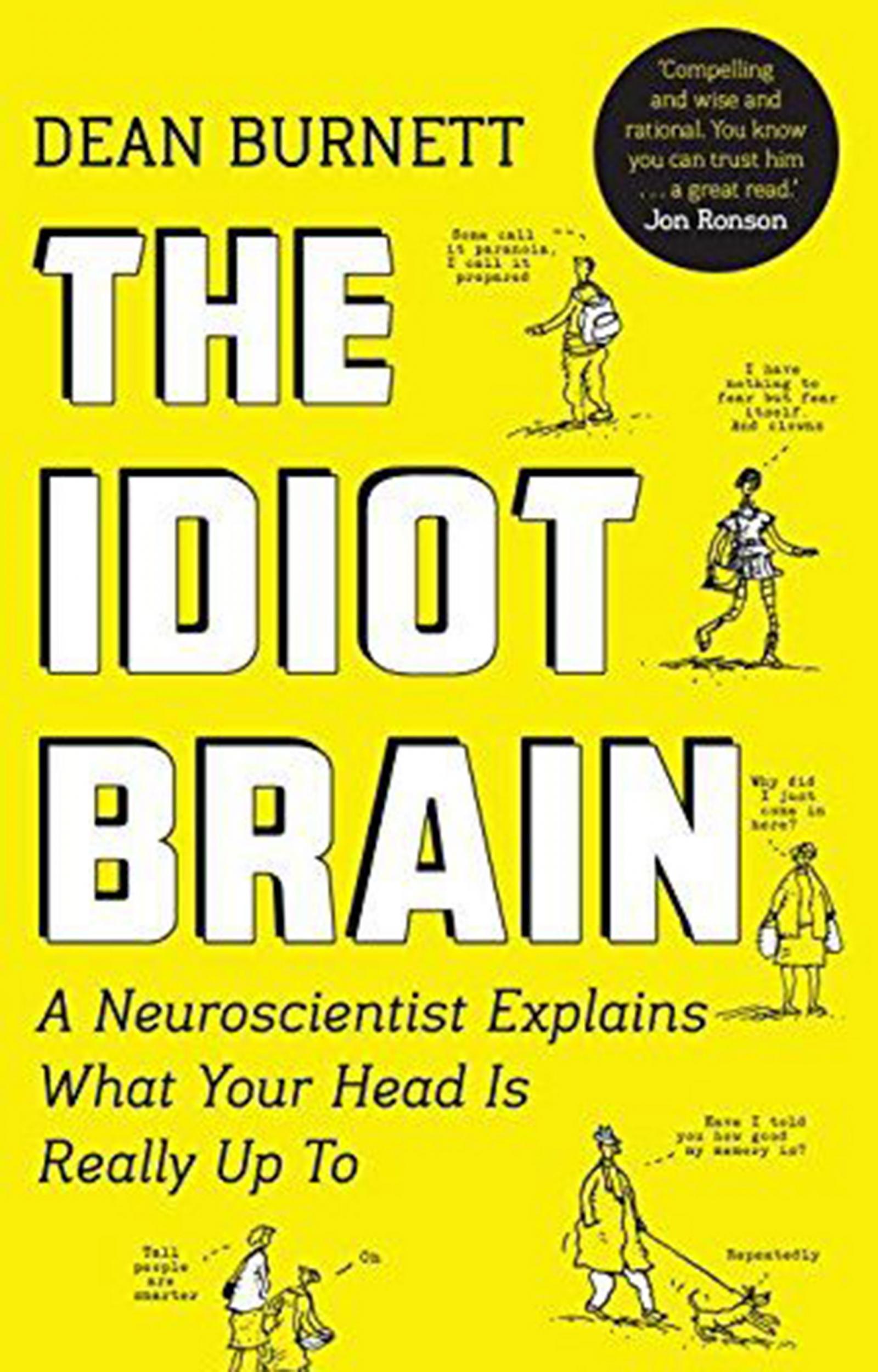Dean Burnett, The Idiot Brain: 'Lifting the lid on our grey matter', book review

Your support helps us to tell the story
From reproductive rights to climate change to Big Tech, The Independent is on the ground when the story is developing. Whether it's investigating the financials of Elon Musk's pro-Trump PAC or producing our latest documentary, 'The A Word', which shines a light on the American women fighting for reproductive rights, we know how important it is to parse out the facts from the messaging.
At such a critical moment in US history, we need reporters on the ground. Your donation allows us to keep sending journalists to speak to both sides of the story.
The Independent is trusted by Americans across the entire political spectrum. And unlike many other quality news outlets, we choose not to lock Americans out of our reporting and analysis with paywalls. We believe quality journalism should be available to everyone, paid for by those who can afford it.
Your support makes all the difference.Dean Burnett, a neuroscientist and Guardian blogger, renders the workings of the brain accessible to lay people without being patronising. In The Idiot Brain, he undertakes a journey through the workings of this most complex organ, covering many aspects of the brain’s function. Burnett has a sideline as a stand-up comedian, and this is obvious from the quips with which he lightens his writing. The result is a factual book that is far removed from other dry scientific tomes. The chapters are subdivided into shorter sections, which also eases digestibility.
Burnett starts by focusing on the brain’s function in regulating the body’s behaviour. He discusses how higher functions can override basic instincts – such as in anorexia, where the higher brain stops the body from eating despite hunger. There is a fascinating chapter on memory, which explores how experiences are analysed and laid down, and later retrieved. His frequent use of analogies is helpful and his choices apt.
Burnett also looks at the processes involved in experiencing fear, with a foray into phobias and another into why some people seek out frightening experiences. The chapter on intelligence is informative, and there is an entertaining discussion of the fact that less intelligent people are often more confident. The chapter on the five senses is functional, while the one on personality is enlivened by valuable nuggets such as the discovery that anger can reduce stress. Social connections are then discussed, and there’s an analysis of the ways in which we may be controlled and manipulated by others. The section on how our brain often chooses being liked over doing what we believe to be correct is compelling, as is the part on empathy.
The chapter on mental health problems is a decent introduction to some common psychiatric conditions. A minor quibble – when Burnett talks about methadone addicts attempting to inject the methadone intended for oral use, he seems to attribute this entirely to addicts getting a high from using associated drug paraphernalia such as syringes, but in fact methadone is two times more effective when administered intravenously because, like other opiates, it undergoes significant first-pass metabolism in the liver when taken orally.
My only real criticism is that the proofreader did a shabby job. On pages 127 -128, virtually the same paragraph is printed twice. There are also typos on pages 183, 184, 211, 234, 269, 274, 284, 292, 293, 294 and 298. But perhaps my pointing this out is my brain subconsciously asserting that it wants a job as a sub editor. This is a wonderful introduction to neuroscience, and deserves to be widely read.
Join our commenting forum
Join thought-provoking conversations, follow other Independent readers and see their replies
Comments